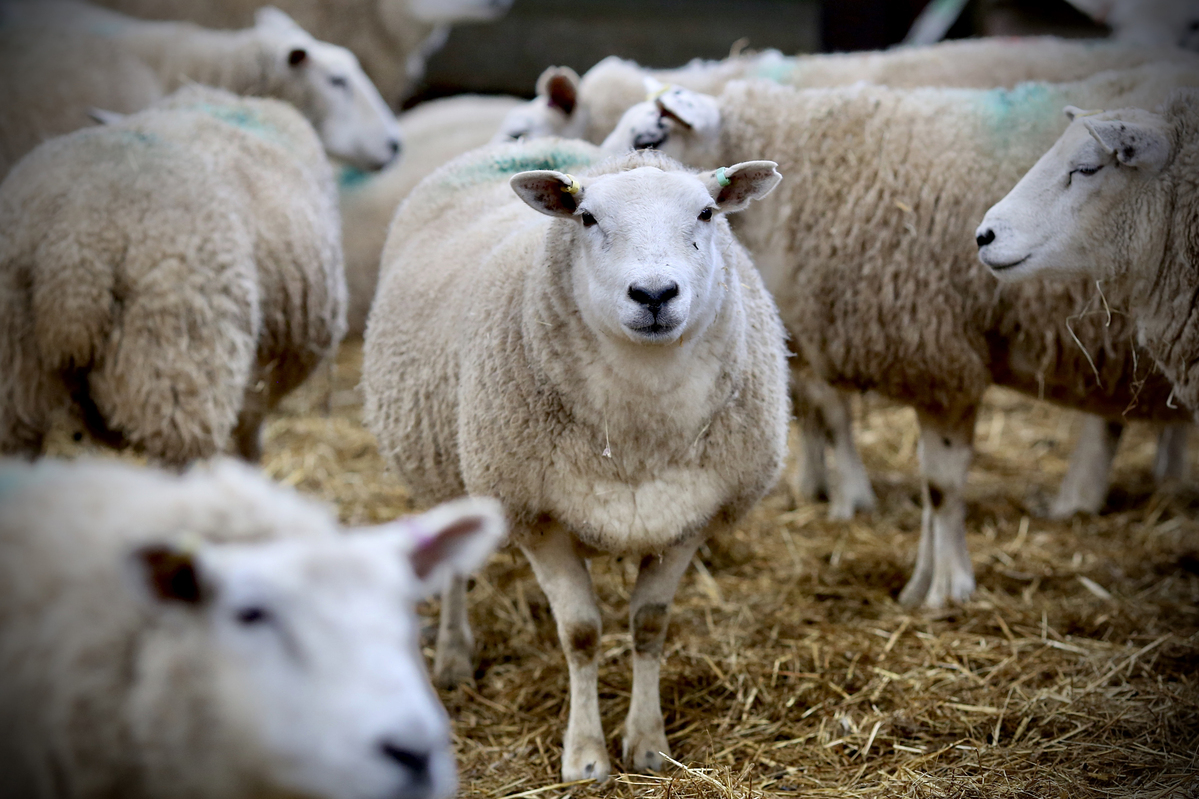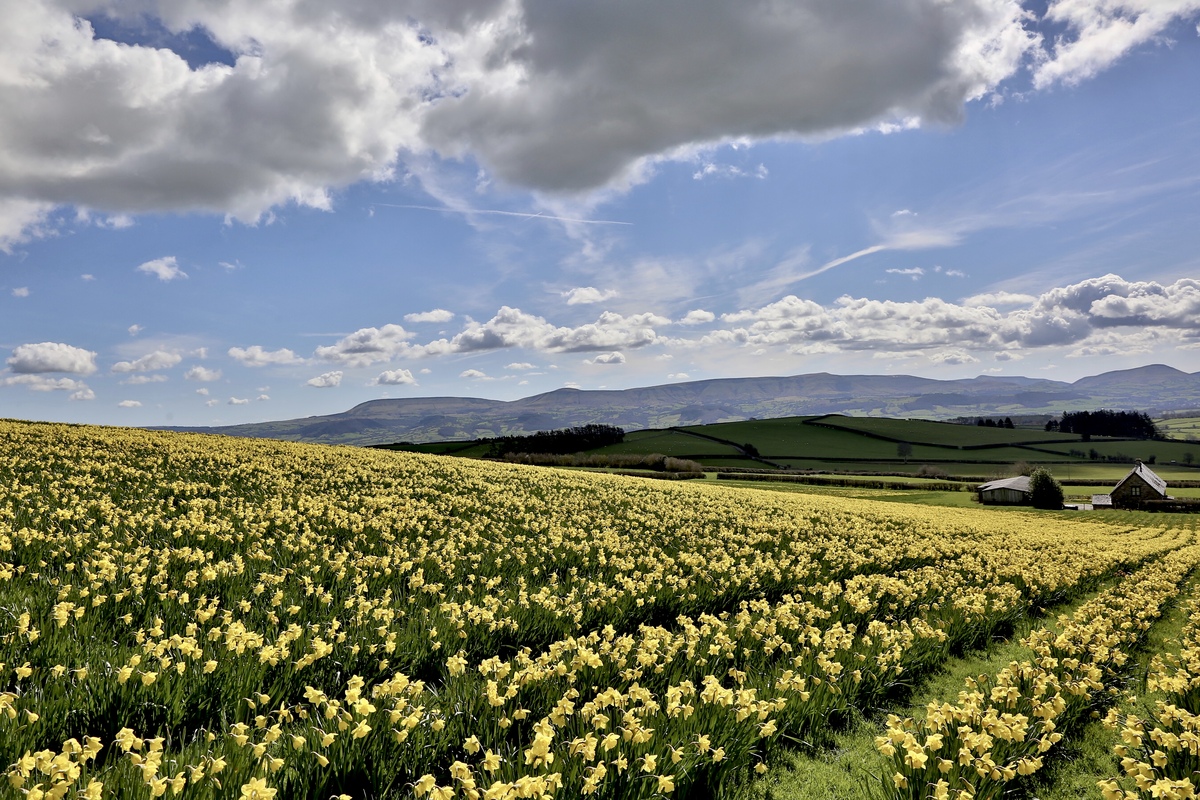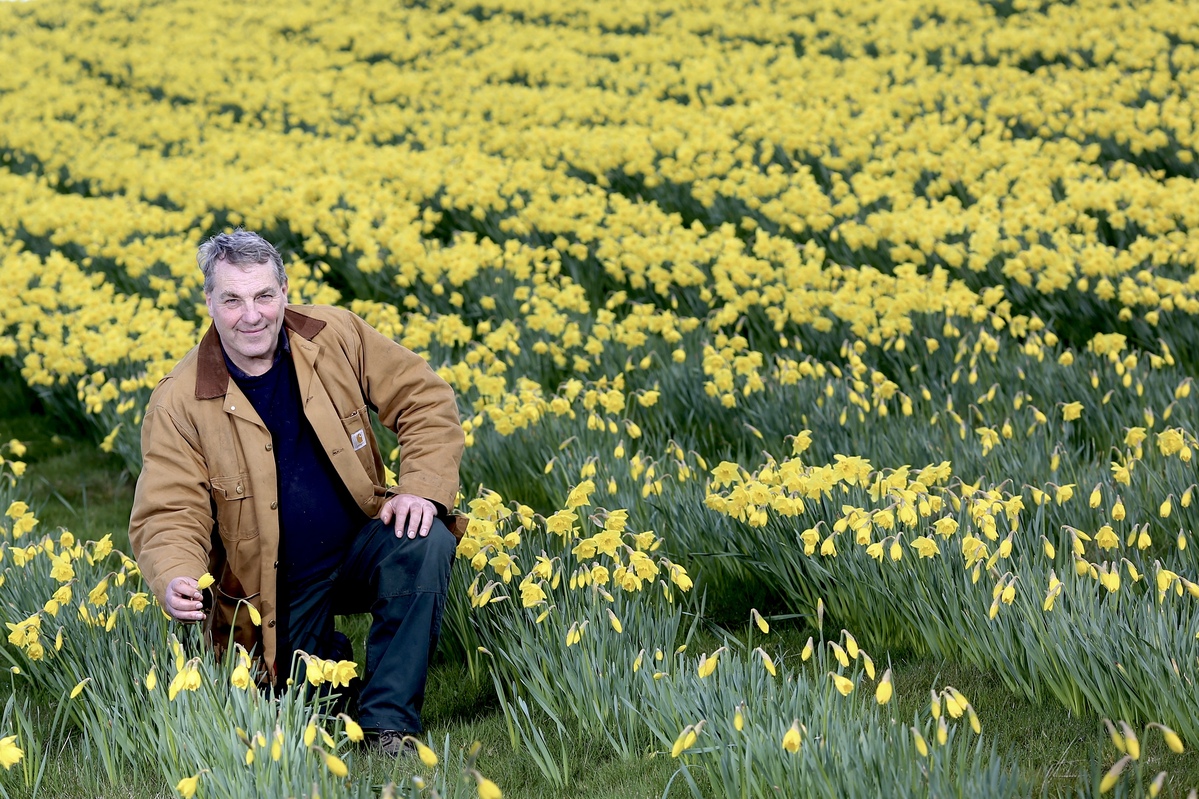As a man who has spent many years growing thousands of daffodils on his farm in the hills of Powys, Kevin Stephens has a surprising confession to share. “The daffodil is the most recalcitrant plant I have ever dealt with – it is awkward, stubborn and uncooperative. For that reason, I should hate them!” he laughs.
It is the process of extracting the plant alkaloid galanthamine that has caused him sleepless nights, not the growing of Wales’ favourite flower; this compound is an approved treatment for slowing down the progress of Alzheimer’s disease and vascular dementia. It is the reason why daffodils are such an important part of Kevin’s business. “We have to separate the galanthamine from the biomass, but it is the most awkward substrate to work with, it won’t filter, settle, boil, centrifuge, that’s why it has taken so long to get to where we are now.”
Black Mountain effect
It all started in 2008 with a phone call he made to scientist Professor Trevor Walker. Kevin had read an article on research by Professor Walker in conjunction with the Institute of Grassland and Environmental Research at Aberystwyth; growing daffodils at altitude had been shown to stimulate the production of galanthamine, the so-called ‘Black Mountain effect’.
He called Professor Walker. “I got conscripted into making it happen and 14 years later, Trevor has retired and I’m still bashing away at it,” says Kevin. That ‘bashing away’ is the work he is doing at Agroceutical Products, the bioresearch firm he established in 2012 to commercialise Professor Walker’s research. It has been a frustrating process because before Kevin can secure a contract from a pharmaceutical company he needs to show that he can produce hundreds of kilograms of galanthamine.
“It is a chicken and egg situation, we can’t get to the point where we can deliver that volume until we get investors, but we can’t get investors until we get a contract from a pharmaceutical company,” he explains. But this year will mark a breakthrough in part, with the launch of what Kevin is calling a ‘brain health pill’, an over-the-counter supplement he has developed with a Canadian neuroscience company. “It is a way of breaking the cycle we are in with investors and the pharmaceutical
companies,” says Kevin.
He is fully prepared for initial sales to be slow because it is a new product but matching the increase in production to increasing demand for the new product is the key to breaking that chicken and egg position, he says. “Our plan isn’t to go from zero to hero in a single bound. “Our research and development has taken a lot of time, so it is very exciting to get to the point where we have a product coming to the market.” It has been years in the making and Kevin has persevered when others would have given up. “My wife tells me I’m just plain pig-headed.” He is both a farmer and an entrepreneur.

As a farmer, with his wife, Tracey, and their eldest son, 28-year-old Mark, he produces lamb from a flock of 520 March-lambing Texel-cross ewes and beef from 40 Limousin cross suckler cows. “We are a typical mid-Wales family farm,” he says. But while the farm may be typical, Kevin is anything but a stereotypical farmer. He is advising on projects across the world, from China to South America, after being contacted by others who have heard about his work and are researching their own products, including anti-cancers and anti-virals.
“I took a call last summer from a man in the Northern Territory of Australia who wanted to extract a chemical compound from the bark of his trees and asked me to help him find a way of doing that.” Although he could charge a consultancy fee Kevin often gives his time and advice freely. “I can’t take it with me,” he reasons. “When they stick me under the ground, I would like to be remembered for helping a lot of people rather than for making a lot of money.”
That includes generating a new income stream for hill farms similar to his. Once the galanthamine project is commercialised he will provide opportunities for farmers to grow daffodils to supply the business.
Form of diversification
With the Wales Farm Business Survey year-on-year consistently showing that hill cattle and sheep farms just couldn’t survive without the Basic Payment Scheme (BPS), growing daffodils would be a form of diversification when that subsidy ends.
“We can’t all open a farm shop, run a B&B or offer horse livery,” reasons Kevin. Like Fedwlydan but unlike the big arable areas of East Anglia what those hill farms have is altitude, a very necessary feature for growing daffodils rich in galanthamine. “You have got to have a mountain, they haven’t got those in East Anglia,” Kevin points out.
“Daffodils also thrive in a cold, wet, miserable spring and we have plenty of those in Wales too!”

Commercial growing
He is very close to being able to roll out the commercial growing of daffodils to other farmers. “We have deliberately not pushed the growing side until the customer call-off has been established,” he says.
His vision is to have geographical clusters of growers planting a small acreage rather than one or two large scale growers.
“I’d like to see four or five farmers in one area growing one or two fields each. I want this to be beneficial to as many farmers as possible so that everyone gets a little bit extra rather than one individual making all the money.”
Additional income
As sheep don’t eat daffodils, it is possible for them to graze the fields where the flowers are planted with the added benefit of using grazing as a management tool to keep the grass down.
“Research has shown you can produce the same amount of sheep-meat per acre in a field with daffodils as a field without, so it allows farmers to generate an additional income from that acre,” says Kevin. And he should know as he has sheep grazing the daffodil fields, he is growing at Fedwlydan.
Despite all the many plates he is spinning, Kevin remains a farmer at heart. “I still get up at 6am to feed the sheep, farming is a way of life.”
